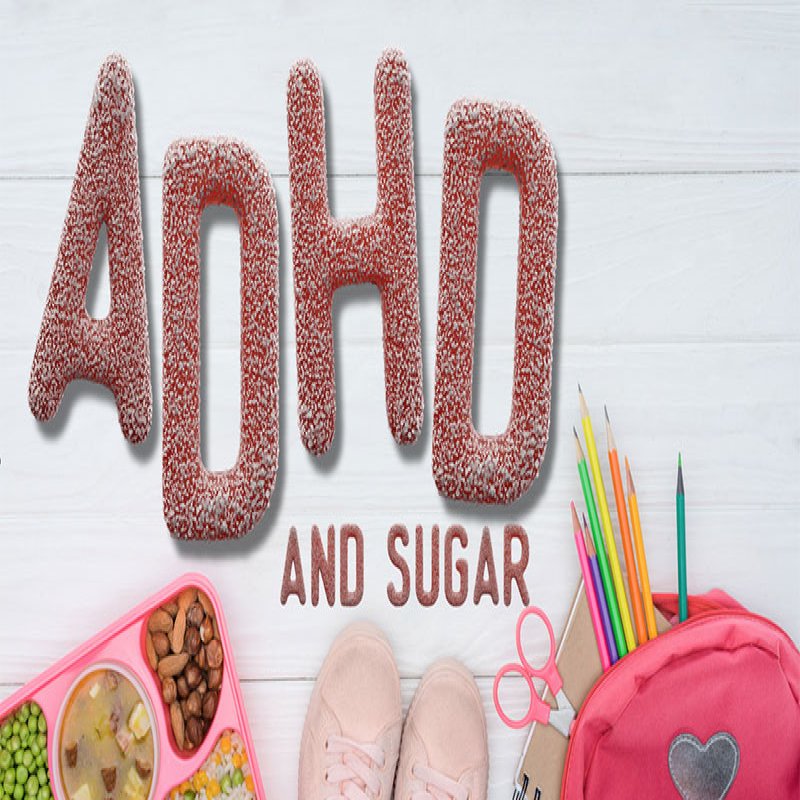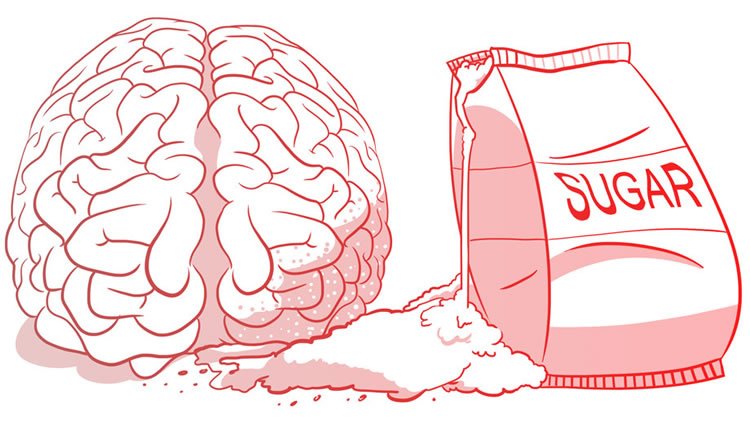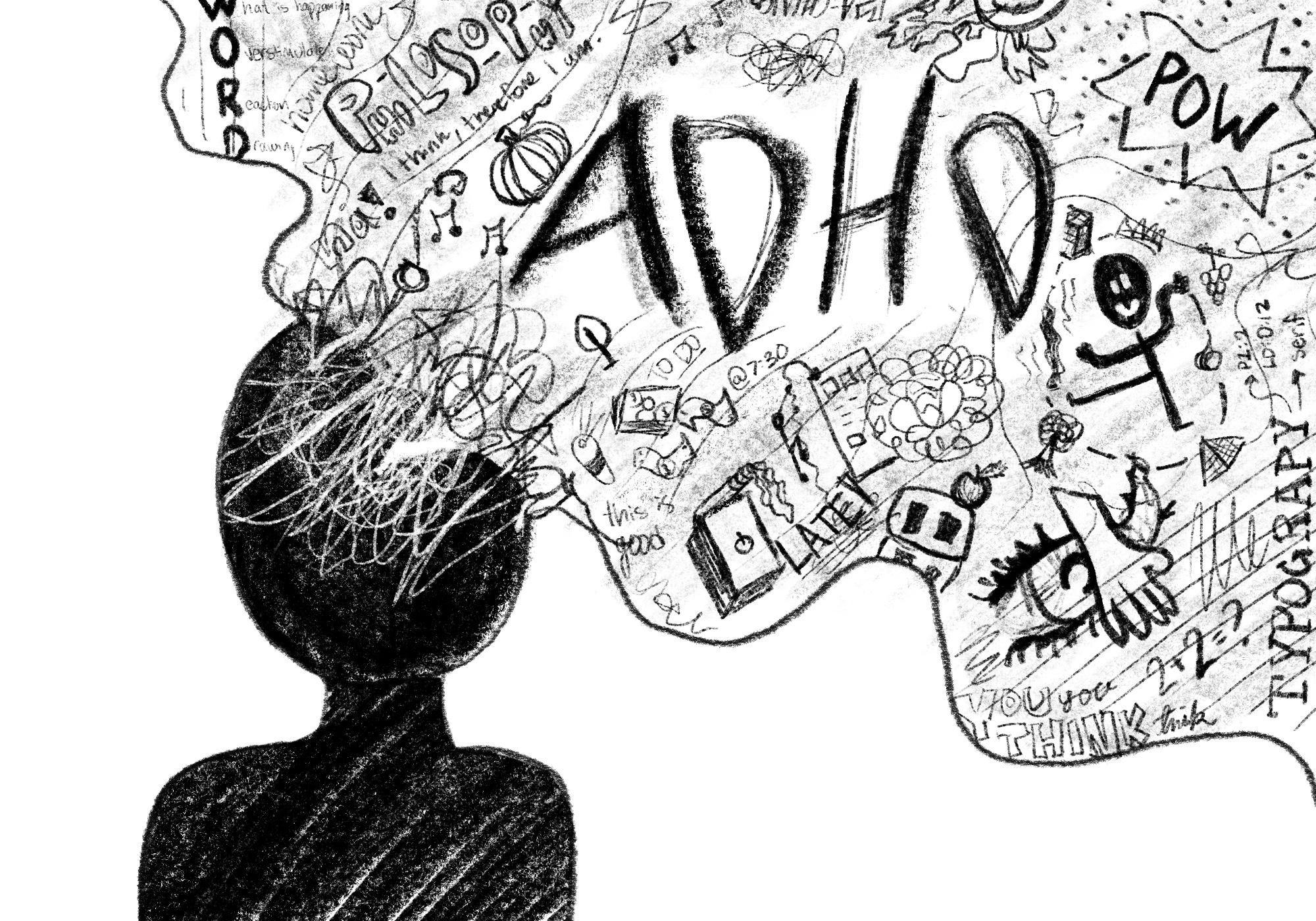
Many factors contribute to the development of ADHD; excessive sugar intake can be one of them. A new study has concluded that consuming more than the required amount of sugar can exacerbate the symptoms.
Read to learn more.
When talking about a healthy body, it is often suggested that we cut down on our sugar intake or completely avoid it. This is true, but it is crucial to know what kinds of sugar to avoid to achieve optimal overall health goals. The same goes for people suffering from ADHD; good sugar, if consumed in the appropriate amount, can prove to be beneficial for the body.
In layman's language, there are two types of sugars: good and bad. Good sugars are those that come in natural form and are combined with vitamins, nutrients, minerals, and fibers, for instance, from fruits, vegetables, unsweetened dairy products, etc. Bad sugars are those that are added to the product to sweeten it; they are often called processed, fake, or free sugars, whose consumption can harm our body, e.g., found in processed or refined foods. When bad sugars are consumed frequently, it can lead to various health problems like obesity, cardiovascular problems, diabetes, neurodevelopmental disorders, and many more.
Sugar and its Effect on the Brain
Sugar affects the functioning of the brain, and since ADHD is a neurological disorder, sugar does affect ADHD. The brain needs a certain amount of sugar for it to function properly; information retention and memory functions are fueled by sugar. Although sugar is necessary for the brain, consuming too much can harm mental, physical, and behavioral health. For people suffering from ADHD, too much sugar can lead to increased hyperactivity, problems with attention and focus, and fluctuating moods. Sugar also influences dopamine levels, and thus excessive sugar also causes fluctuations in hormones.

Sugar comes in many forms, including sucrose, corn sweetener, dehydrated cane juice, corn syrup, dextrin, dextrose, maltodextrin, malt syrup, sorghum syrup, maltose, rice syrup, saccharose, and molasses. When you consume carbohydrates, the body converts them into glucose (a kind of sugar), which the muscles and organs (including the brain) use as an energy source. The neurons within the brain are unable to store glucose, because of this they require a constant and steady supply of it. If the neurons within the brain receive a larger than-normal supply of glucose, the body tends to become hyperactive and experience sugar crashes.
What is ADHD?
ADHD is one of the most common neurodevelopmental disorders in childhood. It is usually first diagnosed in childhood and often lasts into adulthood. It is normal for children to have trouble focusing and behaving at one time or another. However, children with ADHD do not just grow out of these behaviors. The symptoms continue, can be severe, and can cause difficulty at school, at home, or with friends.

Symptoms of a child with ADHD are:
- Daydream a lot
- Forget or lose things a lot
- Squirm or fidget
- Talk too much
- Make careless mistakes or take unnecessary risks
- Have a hard time resisting temptation
- Have trouble taking turns
- Have difficulty getting along with others
Scientists have not yet identified the specific causes of ADHD, but there is evidence that genetics contribute to ADHD. Other factors that may contribute to the development of ADHD include being born prematurely, brain injury, and the mother smoking, using alcohol, or having extreme stress during pregnancy. There are many treatments available; however, the ones that focus on the root cause and not just symptoms are more beneficial, satisfactory, and safe with no side effects.
Sugar and ADHD
Sugar intake has been linked to several behavioral disorders, including attention deficit hyperactivity disorder and bipolar disorder, especially those sugars that are consumed in the form of fructose. Fructose lowers the energy in cells, causing a response similar to starvation. Researchers suggest that high intake causes a “hyperactive foraging response that stimulates craving, impulsivity, risk-taking, and aggression that increases the risk for ADHD, bipolar disease, and aggressive behavior." They also found evidence that high-glycemic carbohydrates and salty foods might contribute to the risk of impulsivity and aggression since they can be converted to fructose during metabolism.

One study from Yale University looked at sugar and ADHD symptoms in children and concluded that with increased sugar intake, hyperactive children’s destructive behaviors and restlessness increased. Consuming large amounts of sugar over time leads to memory loss, issues with processing information, anxiety, and depression. Aside from obesity and diabetes, adults with ADHD are susceptible to hyperactivity, fatigue, mood swings, insomnia, alcoholism, drug addictions, etc., all of which are exacerbated by the intake of large amounts of sugar.
Managing Sugar Intake
Excessive sugar is not the cause of ADHD but can accelerate the symptoms or worsen the condition of people who are already diagnosed with it. Therefore, it is a good idea to watch your sugar intake, especially refined sugar. Eating a healthy, balanced diet ensures a stable, steady supply of blood sugar for your body all through the day. This will lead to increased mental focus, balanced moods, and improved attention. Managing sugar intake seems simple enough in terms of just avoiding foods with high sugar content. Yet it is not always this straightforward.
Look at Ingredient Labels
You may already be checking the amount of sugar in certain items you buy. Nonetheless, it is likely that you aren’t checking for sugar in things that you would not assume contain sugar in the first place. It may surprise you to find that sugar is added to several foods you did not consider, such as pasta sauce and whole-wheat bread. This is why it is so important to check everything you put in your shopping basket.
Know what to Look for
Identifying which foods have sugar in them can be difficult because sugar isn’t always listed as sugar. Food manufacturers tend to use different names to “hide” sugar in your food including:
- Fructose
- Dextrose
- Corn syrup
- Corn sweetener
- High-fructose corn syrup,
- Crystalline Fructose
- Malt syrup
- Corn syrup solids

Be Aware of Cravings
From time to time, many people tend to use food to cope with stress, overwhelming emotions, and difficult times. And for some of those people, sugar is their go-to. Begin to turn your attention toward your cravings. The more awareness you have, the more you can manage those cravings. If your child has ADHD and sugar is his or her “go-to” for comfort, try providing education on healthier options.
Alternatives of Sugar
Many people enjoy adding sugar to food and/or drinks for extra flavor. Yet there are so many other options to enhance the taste of what you put in your mouth. Explore new spices, herbs, or citruses as alternative options to help manage your ADHD and sugar consumption.
Consuming only natural sugars in the quantity needed is good for overall health; anything excessive can turn good into bad and can lead to negative consequences. Those who suffer from any disease or disorder should be extra cautious while consuming any form of sugar, as it can aggravate the condition.


.png)


